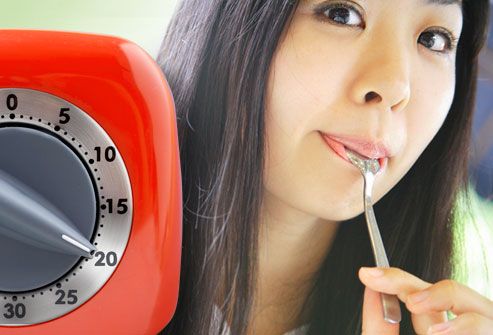 1. Time Your Meals
1. Time Your Meals
Set a timer for 20 minutes and reinvent yourself as a slow eater. This is one of the top habits for slimming down without a complicated diet plan. Savor each bite and make it last until the bell chimes. Paced meals offer great pleasure from smaller portions and trigger the body fullness hormones. Wolfing your food down in a hurry blocks those signals and caused overeating.
2. Sleep More, Weigh Less
Sleeping an extra hour a night could help a person drop 14 ponds in a year, according to a University of Michigan researcher who ran the numbers for a 2500 calorie per day intake. His scenario shows that when sleep replaces idle activities - and the usual mindless snacking - you can effortlessly cut calories by 6%. Result would vary for each person, but sleep may help in another way, too.There's evidence that getting too little sleep revs up your appetite, making you uncommonly hungry.
 3. Serve More, Eat More Veggies.
3. Serve More, Eat More Veggies.
Serve three vegetables, with dinner tonight, instead of just one, and you'll eat more without really trying. Greater variety tricks people into eating more food - and eating more fruits and vegetables is a great way to lose weight. The high fiber and water content fills you up with fewer calories. Cook them without added fat. And season with lemon juice and herbs rather than drowning their goodness in high fat sauces or dressings.
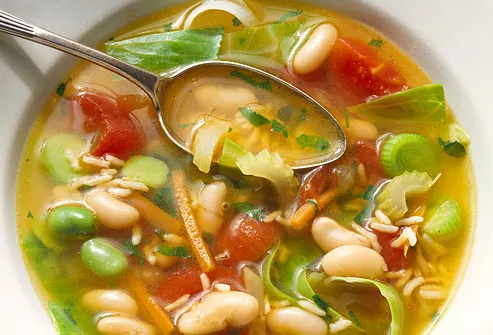 4. When Soup's On, Weight Comes Off
4. When Soup's On, Weight Comes Off
Add a broth-based soup to your day and you'll fill up on fewer calories. Think chinese won-ton,mix vegetables soup etc. Soup's especially handy at the beginning of a meal because it slows your eating and curbs your appetite. Start with a low sodium broth or canned soup, add fresh or frozen vegetables and simmer. Beware of creamy soups, which can be high in fat and calories.
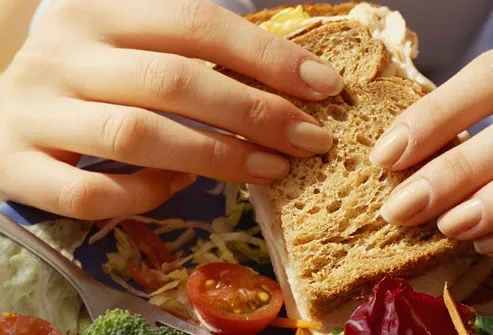 5. Go for Whole Grains
5. Go for Whole Grains
Whole grains such as brown rice, barley, oats, buckwheat and whole wheat also belong in your stealthy weight loss strategy. They help fill you up with fewer calories and may improve your cholesterol profile, too. Whole grains are now in many products including breads, pastas, pizza crust and cereals.
6. Eyeball your S-sized Clothes
Hang on old favourite dress, skirt or pants where you'll see them every day. This keeps your eyes on the prize. Choose an item that's just a little too snug, so you reach this reward in a relatively short time. Then pull out last year's dress for your next small, attainable goal.
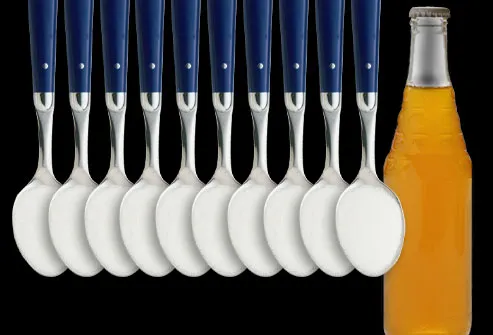 7. Sip Smart : Cut Back on Sugar
7. Sip Smart : Cut Back on Sugar
Replace one sugary drink with water and you'll avoid about 10 teaspoons of sugar. Add lemon, lime, mint, berries for flavor and fun.
8. Sip smart: Use a Tall, Thin Glass
Use a tall, skinny glass instead of a short, wide tumbler to cut liquid calories - and your weight - without dieting. You'll drink 25% - 30% less juice, soda, and any other beverages.
How can this work? Brian Wanswink, PhD, says visual cues trick us into consuming more or less. His tests at Cornell University found all kinds of people poured more into a short, wide glass - even experienced bartenders.
 9. Sip smart: Go for green tea
9. Sip smart: Go for green tea
Drinking green tea may also be a good weight loss strategy. Some studies suggest that it can rev up the body's calorie-burning engine temporarily, possibly through the action of phytochemicals called catechins. At the very least, you'll get a refreshing drink without tons of calories.
10. Slip into a Peaceful State of Mind
Woman who are less stress will resist overeating. Women who do yoga tend to weigh less than others, according to a study in the journal of the ADA. What's the connection? The yoga regulars reported a more mindful approach to eating. For example, they tend to notice the large portions in restaurants but eat only enough to feel full. That's for those who slip into yoga, muslims find peace during performing their daily prayers. Other religion might have their own way too.
11. Eat at Home
Eat home-cooked meals at least five days a week. A reports survey found this was a top habit of 'successful losers'. Sound daunting? Cooking may be easier than you think. Shortcut foods can make for quick meals, such as pre-chopper lean beef or poultry, washed lettuce, pre-cut vegies, canned beans and so many other choices.
 12.Catch the 'Eating Pause'
12.Catch the 'Eating Pause'
Most people have a natural 'eating pause', when they drop the fork for a couple of minutes. Watch for this moment and don't take another bite. Clear your plate and enjoy the conversation.This is the quiet signal that you;re full, but not stuffed. Most people miss it.
13. Chew strong Mint gum.
Chew sugarless gum with a strong flavor when you're at risk for a snack attack. Making dinner after work, socializing at a party, watching TV, or surfing the Internet are a few dangerous scenarios for mindless snacking. Gum with a big flavor punch overpowers other foods so they don't taste good.
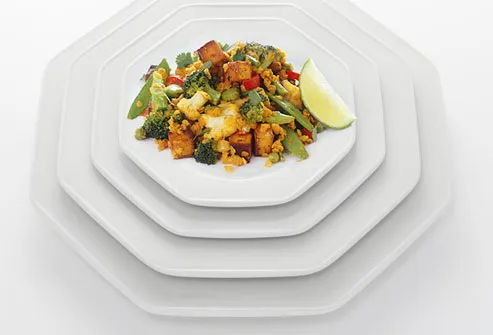 14. Shrink Your Dishes
14. Shrink Your Dishes
Choose a 10-inch lunch plate instead of a 12-inch dinner plate to automatically eat less. Cornell's Brian Wansink, PhD, found in test after test that people serve more and eat more food with larger dishes. Shrink your plate or bowl to cut out 100-200 calories a day - and 10-20 pounds in a year. In the tests, no one felt hungry or even noticed when tricks of the eye shaved 200 calories off their daily intake.
15. Get food Portions Right.

The top habit of slim people is to stick with the modest food portions at every meal, five days a week or more. 'Always slim' people do it and successful losers do it too, according to survey. After measuring portions few times, it can become automatic. Make it easier with small 'snack' packs and by keeping servng dishes off the table at meal time.
16. Try the 80-20 Rule
Malaysians are conditioned to keep eating until they're stuffed, but residents of Okinawa eat until they're 80% full. They even have a name for this naturally slimming habit: hara hachi bu. We can adopt this healthy habit by dishing out 20% less food, according to researcher.
17. Eat out Your Way

Restaurants meals are notoriously fattening, so consider these special orders that keeps portion under control:
- Split your meal with a friend (supportive friend of course)
- Order an appetizer as a meal
- Choose the child's plate/menu
- Complement smaller meal with extra vegies for the right balance.
18. Reach for Healthier Gravies/sauces
Choose marinara sauce for pasta instead of Alfredo Sauce. The tomato based tend to have fewer calories and much less fat than cream-based sauces.
Choose plain chicken soup, assam fish gravies, or vegetable soup to accompany your plain rice.
But remember, portion size still counts.
19. Go meatless more often.
Eating vegetarian meals more often is a slimming habit. Vegetarian tend to weigh less than meat eaters. While there are several reasons for this, legumes may play an important role. It is simply packed with fiber, which most of us get only half of this important nutrient, which fills you up with fewer calories.
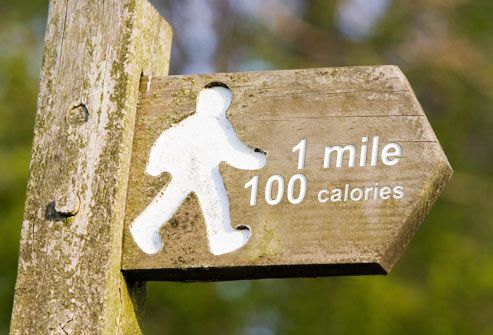 20. Burn 100 calories more
20. Burn 100 calories more
Lose 10 pounds in a year without dieting by burning an extra 100 calories everyday. Try one of these activities:
- walk 1 mile, about 20 min
- Pull weeds or plant flowers for 20 min
- Clean house for 30 min
- Jog for 10 min
21. CELEBRATE!
When you've kicked the soda habit or simply made it through the day without overeating,pat yourself on the back.You've moved closer to a slimming lifestyle that helps people lose weight without crazy or complicated diet plans. Phone a friend, buy new clothes, books - or on occasion, indulge in a small slice of cheesecake.

















